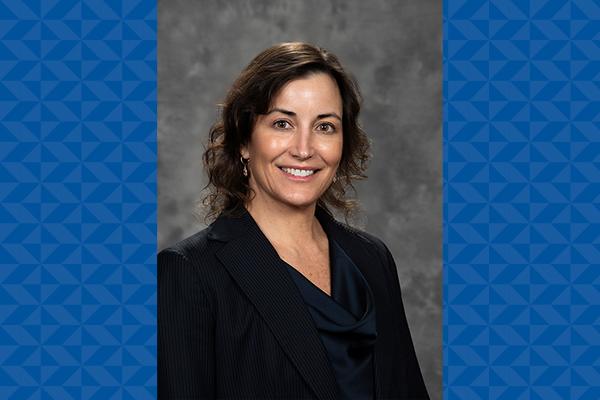
While women represent over half of the population, the latest report from National Academies of Sciences, Engineering and Medicine (NASEM) concluded that the National Institutes of Health ( NIH ) is underspending on research to support women’s health. In the past 10 years, funding on women’s health research has been flat and actually decreased as a share of overall NIH funding. In fact, funding for women's health is only 7.9% of the NIH budget, noted Committee on the Assessment of NIH Research on Women’s Health member Angeles Alvarez Secord, MD, MHSc. Recognizing this urgent need, the NASEM committee recommended $16 billion in new funding and the creation of a new NIH institute dedicated to women's health to overcome the deficit.
Dr. Secord, gynecologic oncologist and member of the Duke Cancer Institute, identified and emphasized the following on the Dec. 5, 2024 webinar presentation following the release of the report titled “A New Vision for Women’s Health Research: Transformative Change at the NIH. The report is posted here.
- Due to the chronic lack of funding of women's health and sex differences research, there are not enough opportunities to grow and retain the women's health workforce. Inadequate funding of women's health research has led to an insufficient number of women's health research investigators. A robust intramural and extramural workforce and infrastructure in women's health and sex differences research is needed.
- This will also instill confidence in stable funding, hopefully, bringing and retaining new research to the field of women's health. Mentorship and career development are vital studies on women's health research, such as through the Building Interdisciplinary Research Careers and Women's Health (BIRCWH) program. Gender-based bias and sexism, and bias related to race and ethnicity, affect the grant review and award making process. The NIH should double the number of BIRCWH centers and increase the amount per center to $1.5 million annually.
- The committee recommends augmentations of existing programs and development of new initiatives to attract, support and retain women's health researchers at all career stages. Specifically, the NIH should create a new subcategory within the loan repayment program for women's health.
- Investigators allow financial support of up to 10% for mentors or all mentored grants for women's health and sex differences. The recommendation is to create and expand existing early and mid-career grant mechanisms that specifically support growing and developing the women's health research workforce support, early career mentored institutional care awards for up to five years to increase retention in the women's health.
- The committee also recommends the NIH prioritize and promote participation of women and investigators from a broade range of communities. Any expansion should include additional funding to ensure that existing research budgets are not reduced. These programs should be distributed across geographically and grantee institutions should collaborate with other disciplines within their organization to offer mentees a comprehensive and multidisciplinary research experience.
“Historical exclusion of women from research has led to persistent gaps in women’s health care that are still negatively impacting girls and women today. Women spend more years living with disability and poor health — on average, 9 years, or 25 percent longer than men — negatively impacting their quality of life and productivity. This is human story, a story about our mothers, sisters and daughters, and the need to improve research funding to better prevent, diagnose and treat those at risk.”
Research gaps identified included elucidation of biological sex differences; management of leiomyoma, endometriosis, PCOS, vulvodynia, and pelvic organ prolapse; prevention and treatment of cervical, endometrial, and ovarian cancers; and menopause, Dr. Secord noted.
Perspectives: Duke Faculty

“One in four women will struggle with some kind of pelvic disorder. More than 50% of women over age 65 suffer from incontinence, and one-third of postmenopausal women have recurrent urinary tract infections, which can significantly impact their daily life. Yet, research in female-specific conditions is severely underfunded, and much of the support goes to research focusing on reproductive-age women. Women’s health care should encompass the full lifespan.
— Nazema Siddiqui, MD, MHScUrogynecologist and KURe Scholar
Participant: NASEM Committee on the Assessment of NIH Research on Women’s Health Hybrid Public Workshop (January 25, 2024)

“As a member of the small global endometriosis research community, I applaud NASEM’s recommendation to establish a dedicated institute for women's health, marking a pivotal moment in addressing critical research and treatment disparities. Endometriosis, a complex condition affecting approximately 10% of women worldwide, has historically suffered from inadequate research funding. The proposed institute represents a transformative opportunity to advance understanding of this and other women's health conditions. Although endometriosis impacts millions globally, and can present with severe pain and/or infertility, current medical understanding remains limited, with insufficient diagnostic tools and treatment options
NASEM’s recommendation signals a fundamental shift in approaching women's health research. For decades, conditions predominantly affecting women, such as endometriosis and fibroids, have been de-emphasized, understudied and underfunded.”
— Stephen Young, MD, PhD, Division Chief of Reproductive Endocrinology and Infertility
Participant: NASEM Committee on the Assessment of NIH Research on Women’s Health Public Workshop (March 7, 2024)

The NASEM report has taken a thorough, thoughtful and long-overdue look at the state of women’s health research funding through the NIH. It has identified a striking and persistent level of inadequate funding, suggested harms that have resulted from these deficiencies and has made specific and tangible recommendations to help to rectify historical patterns. As a prior recipient of a K-type NIH training grant aimed to support careers in women’s health research and the present director of the same NIH-funded training opportunity, I was particularly excited to see a recommendation to expand these highly successful training programs as a means to grow the scientific workforce necessary to implement NASEM’s recommendations.
— Danny Schust, MD, Vice Chair for Research